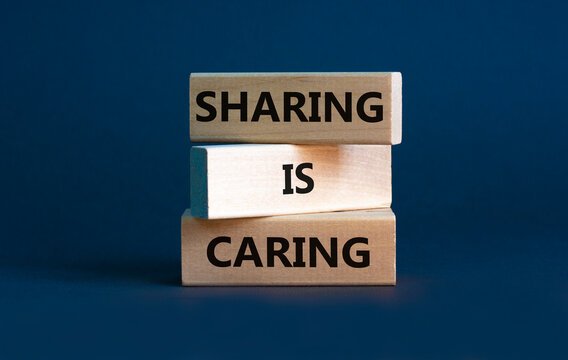
Understanding the Concept of Sharing
The concept of Sharing is Caring plays a pivotal role in human interactions, embodying both tangible and intangible dimensions of connection. At its core, sharing involves the voluntary distribution of resources, knowledge, or experiences between individuals or groups, fostering a sense of community and belonging. The act of sharing is not merely an exchange; it reflects a fundamental human need for social connection and cooperation. Through sharing, individuals express their generosity, which can significantly enhance interpersonal bonds, thereby illustrating that sharing is caring.
Psychologically, the act of Sharing is Caring activates regions in the brain associated with reward and satisfaction, reinforcing the positive emotions tied to generosity. Acts of kindness, such as sharing time, skills, or possessions, produce feelings of happiness not only for the giver but also for the recipient. This emotional reciprocity cultivates empathy and trust, essential elements that contribute to strong, lasting relationships. Furthermore, sharing experiences can lead to communal memories that strengthen group identity and cohesion.
Historically, various cultures have embraced sharing as a core value. For instance, many indigenous communities prioritize collective ownership and mutual support, which solidifies social ties and enhances cooperation. Sharing extends beyond physical items; it encompasses the exchange of knowledge, cultural insights, and emotional support. This multi-faceted approach to sharing emphasizes its role in promoting learning and understanding among diverse groups. The proliferation of technology has also redefined the act of sharing, enabling experiences, ideas, and resources to transcend geographical barriers.
In broader societal contexts, sharing acts contribute to community resilience, particularly in times of crisis. Whether through resource sharing during emergencies or collaborative problem-solving initiatives, the connections forged through generosity bolster social frameworks. Ultimately, recognizing the varied dimensions of sharing reveals its integral role in nurturing relationships and fostering societal cohesion, exemplifying that indeed, sharing is caring.
The Benefits of Sharing is Caring: Impact on Individuals and Communities
Sharing is Caring an intrinsic part of human interaction that serves to foster a sense of community and belonging. At an individual level, the act of sharing can have profound effects on mental health. Research indicates that engaging in acts of generosity, be it Sharing is Caring time, resources, or emotions, significantly reduces stress and cultivates a sense of happiness. This is primarily due to the emotional rewards associated with seeing the positive outcomes of one’s generosity, which can bolster an individual’s self-esteem and overall well-being.
Additionally, when individuals participate in sharing, they often experience a heightened sense of connection with others. This sense of belonging is pivotal in combating feelings of loneliness and isolation. Engaging in collaborative activities, such as community service or group projects, allows people to bond over shared experiences. The communal aspect of sharing nurtures relationships, creating a supportive network that individuals can rely on in times of need.
On a broader scale, the ripple effect of Sharing is Caring can significantly enhance community dynamics. When individuals share resources and support one another, it cultivates an environment built on trust and cooperation. For instance, community initiatives such as food banks or cooperative housing projects demonstrate how collective sharing can improve social cohesion. Studies have shown that communities where sharing is encouraged tend to exhibit lower crime rates and higher levels of civic engagement. Individuals are more likely to look out for one another, creating an atmosphere in which everyone feels valued and cared for.

Real-life examples abound: consider the rise of community gardens and their impact on urban areas, where residents come together to cultivate not only plants but also relationships and trust. Such initiatives illustrate how sharing can transcend individual gains and contribute to community resilience and harmony.
Ultimately, the myriad benefits of sharing—both personal and communal—highlight why the phrase “sharing is caring” resonates profoundly in today’s world.
Overcoming Barriers to Sharing
In contemporary society, various psychological and societal barriers often hinder the act of sharing. Fear of loss is one of the most prevalent obstacles; individuals may resist sharing resources or knowledge due to the anxiety that doing so could lead to diminished personal gain or advantage. This apprehension can be particularly pronounced in competitive environments, where individuals perceive sharing as potentially detrimental to their standing or success.
Another significant barrier to Sharing is Caring lies in societal norms that discourage overt generosity. Often, cultural narratives emphasize self-reliance and competition, leading to a mindset where sharing is undervalued or viewed as an act of weakness. Such attitudes can create an atmosphere of mistrust and insecurity, further exacerbating the reluctance to share among individuals. This reluctance not only affects personal relationships but also stifles collaboration in workplaces and communities.
To overcome these barriers, it is essential to foster an understanding that sharing is not about losing one’s own resources but about creating a network of mutual support and growth. Initiatives that highlight the benefits of collaboration over competition can play a vital role in reshaping these narratives. For instance, organizations could implement team-building activities that encourage collective problem solving and emphasize the positive outcomes of sharing knowledge and resources.
Moreover, building a culture of sharing requires intentional practices within families, workplaces, and communities. Encouraging open dialogues about the importance of generosity helps individuals recognize its value. Celebrating acts of kindness and promoting community involvement can also inspire others to embrace sharing as a normative practice. Thus, by addressing the fears and misconceptions that inhibit generosity, individuals and organizations can cultivate a more collaborative environment where sharing is appreciated and encouraged.
Ways to Encourage Sharing in Everyday Life
In a world where individualism often prevails, promoting the ethos of sharing is essential for fostering genuine connections within communities. There are several practical approaches individuals can adopt to incorporate the spirit of generosity into their daily lives. One effective strategy is to organize community events that encourage participation and collaboration. Events such as neighborhood potlucks or book swaps provide platforms for individuals to share resources and experiences, thus strengthening communal ties. Moreover, volunteer opportunities at local shelters or food banks can galvanize community members around a common purpose, facilitating the essence of sharing and caring.
Another avenue for cultivating a culture of Sharing is Caring lies in collaborative projects. Engaging in group activities, such as community gardening or arts and crafts workshops, allows participants to contribute their skills and talents while also learning from one another. These joint endeavors not only yield tangible results but also create a sense of belonging and mutual support among participants. Additionally, integrating technology can further enhance these initiatives; utilizing social media to promote sharing of resources, ideas, and talents can widen the reach of good practices. Platforms such as local Facebook groups or neighborhood apps can serve as channels for individuals looking to give or receive help, whether it be through sharing tools, volunteering services, or organizing group activities.
Simple acts of kindness can also make a significant impact, such as offering assistance to neighbors or donating items to charity. Modeling sharing behavior in everyday interactions can inspire others to take similar actions, creating a ripple effect of generosity. Whether it’s lending a helping hand or engaging in thoughtful conversations, small gestures contribute significantly to a culture of shared values. By fostering an environment where sharing is commonplace, individuals can embody the principle of ‘sharing is caring’ and encourage others to reflect on their own practices, reinforcing the importance of community connections.







